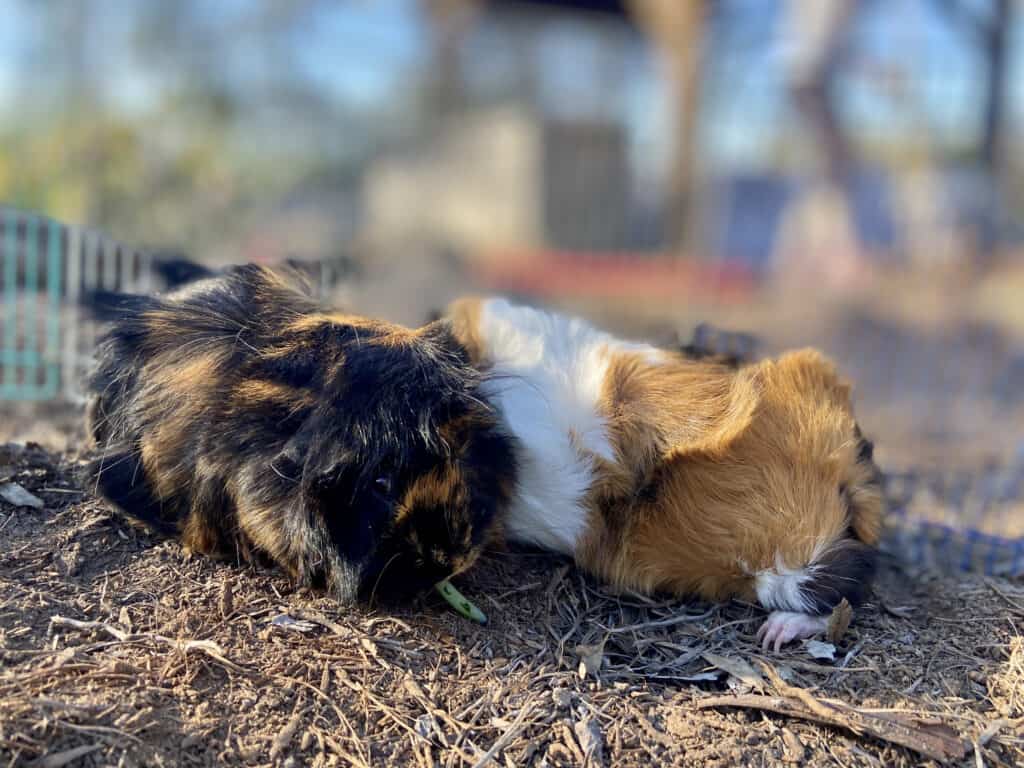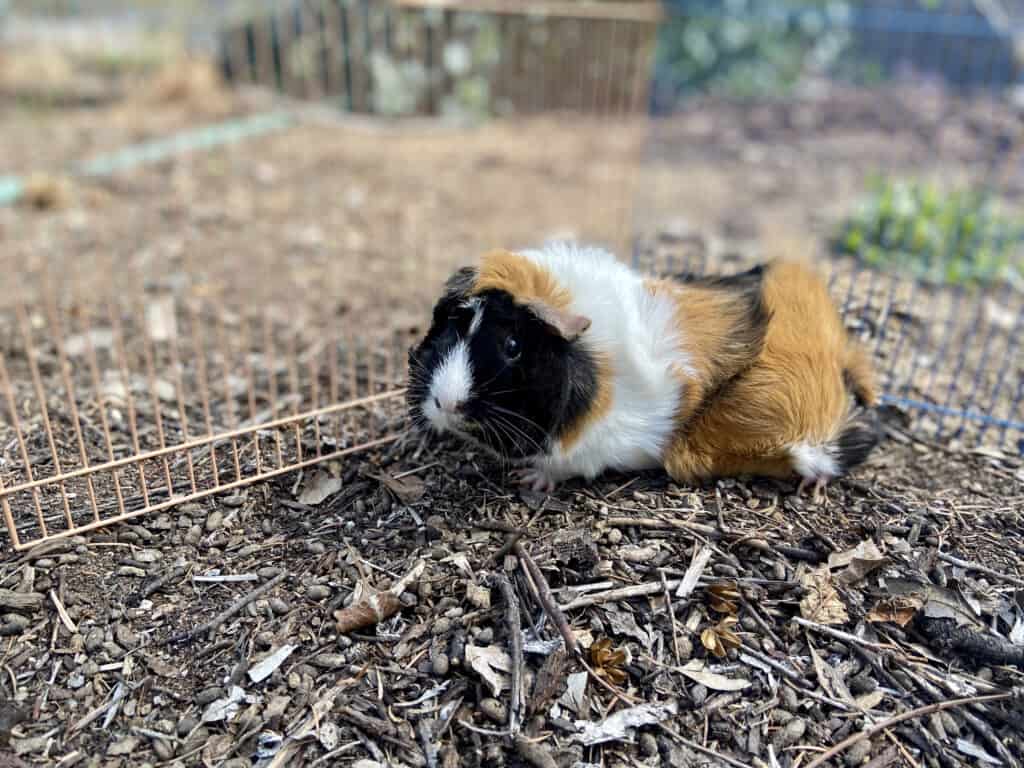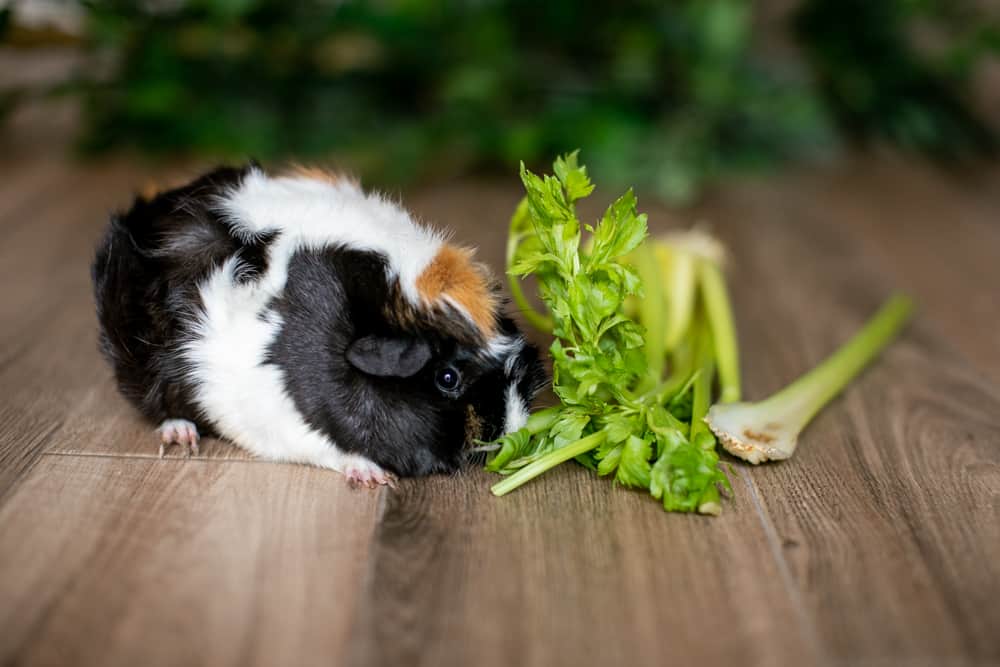As an Amazon Associate we earn from qualifying purchases.
Can Guinea Pigs Eat Dill? That is a question that many people have asked, and the answer is yes! Dill is a herb that is often used in cooking. This blog post will discuss the benefits of feeding Dill to Guinea Pigs and how much Dill they should eat each day.
Dill
Dill is a herb that is native to the Mediterranean region. It is a parsley family member, and its scientific name is Anethum graveolens. Dill has a strong, distinctive flavor often used in pickling recipes. It is used fresh or dried. Dill can be found in the spice aisle of most grocery stores.

Types Of Dill
Two types of Dill are commonly used in cooking: Dill Weed and Dill Seed. Dill Weed is the plant’s leaves, while Dill Seed is the dried fruit of the plant. Both types of Dill have a strong flavor, but Dill Weed is more potent.
Nutritional Content
Dill contains the following contents:
- Vitamin A: Required for good vision, bone growth, reproduction, and cell division. Vitamin A deficiency can lead to night blindness.
- Vitamin C: Essential for the formation of collagen, which is important for healthy skin, bones, and connective tissue. Vitamin C also helps the body absorb iron.
- Dietary fiber: Helps keep the digestive system healthy and can help prevent constipation.
- Manganese: A mineral necessary for bone development, wound healing, and blood sugar regulation.
- Calcium: Essential for strong bones and teeth.
- Iron: Helps the body create red blood cells, which carry oxygen to the cells.
- Potassium: Helps regulate blood pressure and heart function.
- Dill also contains small amounts of magnesium, phosphorus, and zinc.
Can Guinea Pigs Eat Dill?
Yes, guinea pigs eat Dills and various other herbs. These rodents eat them naturally as part of their grazing diet.
You should continue to vary the types of green leaves you provide them, though. A guinea pig’s diet should consist of hay, fresh vegetables, and a small number of pellets. Guinea pigs should have access to hay at all times.
Hay provides them with the fiber they need to maintain their digestive system health. Fresh vegetables should be given to them daily, and they should be rotated, so the guinea pigs don’t become bored.
Health Benefits Of Dill
Dill has many health benefits for guinea pigs. The most notable ones are:
Antioxidant Properties
Dill contains antioxidants, which can help protect cells from damage. Antioxidants can assist with body infection and prevent various illnesses, such as heart disease, liver damage, kidney problems, and chronic illness.

Anti-inflammatory Properties
Dill has anti-inflammatory properties, which can benefit guinea pigs that suffer from arthritis or other inflammatory conditions.
Digestive Aid
Dill can help with digestion and can also relieve gas and bloating. It is good to give your guinea pig a small amount of Dill each day.
Strong Immune System
Dill can help improve the immune system. This is important because a strong immune system will help your guinea pig fight off infection and disease.
Strong Heart
Dill can also help improve heart health. This is important because a healthy heart will pump blood more efficiently throughout the body.
Source Of Folate
Dill is a good source of folate, which is important for pregnant guinea pigs. Folate helps to prevent congenital disabilities.
How Much Dill Should Be Fed?
You should give your guinea pig a small amount of Dill each day. You can add it to their hay or give it as a treat. If you are giving them dill as a treat, you should only give them a few leaves at a time.
Guinea pigs love to eat, so it is important to monitor their food intake. Obesity can lead to health problems, such as heart disease, joint pain, and respiratory problems. Guinea pigs can eat both the leaves and the seeds of the dill plant.
You should wash the Dill thoroughly before giving it to your guinea pig. This will remove any dirt or pesticides that may be on the plant. Even baby guinea pigs can eat dills. A guinea pigs diet can include fresh fruits and vegetables.
How To Prepare Dill For Guinea Pigs?
Wash the Dill thoroughly and then chop it into small pieces. You can add the Dill to their hay or give it to them as a treat. If you are giving them dill as a treat, you should only give them a few leaves at a time.
You should monitor your guinea pig’s food intake and make sure they are not overeating. Obesity can lead to health problems, such as heart disease, joint pain, and respiratory problems.
Health Vegetables For Guinea Pigs
Dill is a healthy vegetable for guinea pigs, but it is not the only one. Some other vegetables that are good for them are:
Carrots
Carrots are a good source of beta-carotene, converted to vitamin A in the body. Vitamin A is important for vision, skin, and immune health. Carrots are also a good source of fiber. Carrots can also help to keep a guinea pig’s teeth healthy.

Celery
Celery is a good source of vitamins A, C, and K. It is also a good source of potassium and fiber. Celery can help to keep a guinea pig’s blood pressure low. Celery is also a good diuretic, which can help to prevent urinary tract infections.
Spinach
Spinach is a good source of vitamins A, C, and K. It is also a good source of iron. Spinach can help to improve blood circulation and can also help to prevent constipation.
Hay
Hay is a good source of fiber. It helps to keep a guinea pig’s digestive system healthy and can also help to prevent obesity.
Basil
Basil is a good source of vitamins A and C. It is also a good source of iron. Basil can help to improve blood circulation and can also help to prevent constipation.
Parsley
Parsley is a good source of vitamins A and C. It is also a good source of iron. Parsley can help to improve blood circulation and can also help to prevent constipation.
Conclusion
Dill is a healthy vegetable for guinea pigs. It has many health benefits, including the ability to improve digestion, help with arthritis, and improve heart health. Dill is also a good source of folate, which is important for pregnant guinea pigs.
You should give your guinea pig a small amount of Dill each day. Wash the Dill thoroughly before giving it to your guinea pig. You can add the Dill to their hay or give it to them as a treat. If you are giving them dill as a treat, you should only give them a few leaves at a time.